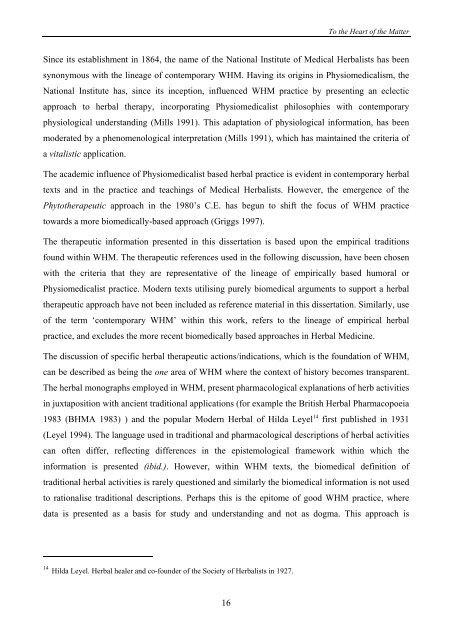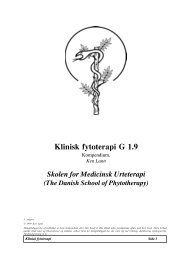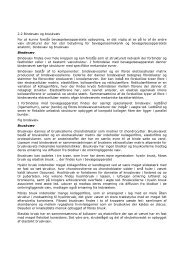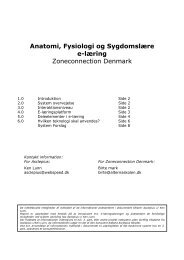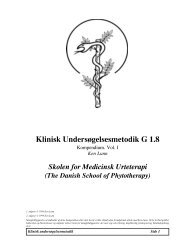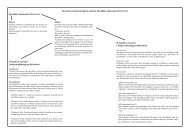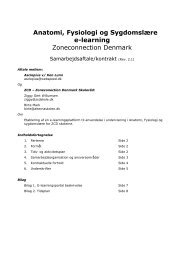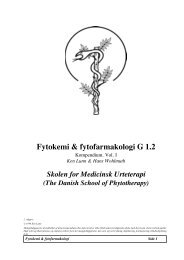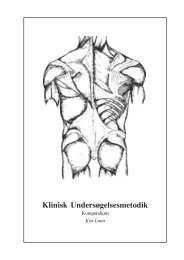PDF File - Asclepius Herbal Consultancy
PDF File - Asclepius Herbal Consultancy
PDF File - Asclepius Herbal Consultancy
Create successful ePaper yourself
Turn your PDF publications into a flip-book with our unique Google optimized e-Paper software.
To the Heart of the Matter<br />
Since its establishment in 1864, the name of the National Institute of Medical <strong>Herbal</strong>ists has been<br />
synonymous with the lineage of contemporary WHM. Having its origins in Physiomedicalism, the<br />
National Institute has, since its inception, influenced WHM practice by presenting an eclectic<br />
approach to herbal therapy, incorporating Physiomedicalist philosophies with contemporary<br />
physiological understanding (Mills 1991). This adaptation of physiological information, has been<br />
moderated by a phenomenological interpretation (Mills 1991), which has maintained the criteria of<br />
a vitalistic application.<br />
The academic influence of Physiomedicalist based herbal practice is evident in contemporary herbal<br />
texts and in the practice and teachings of Medical <strong>Herbal</strong>ists. However, the emergence of the<br />
Phytotherapeutic approach in the 1980’s C.E. has begun to shift the focus of WHM practice<br />
towards a more biomedically-based approach (Griggs 1997).<br />
The therapeutic information presented in this dissertation is based upon the empirical traditions<br />
found within WHM. The therapeutic references used in the following discussion, have been chosen<br />
with the criteria that they are representative of the lineage of empirically based humoral or<br />
Physiomedicalist practice. Modern texts utilising purely biomedical arguments to support a herbal<br />
therapeutic approach have not been included as reference material in this dissertation. Similarly, use<br />
of the term ‘contemporary WHM’ within this work, refers to the lineage of empirical herbal<br />
practice, and excludes the more recent biomedically based approaches in <strong>Herbal</strong> Medicine.<br />
The discussion of specific herbal therapeutic actions/indications, which is the foundation of WHM,<br />
can be described as being the one area of WHM where the context of history becomes transparent.<br />
The herbal monographs employed in WHM, present pharmacological explanations of herb activities<br />
in juxtaposition with ancient traditional applications (for example the British <strong>Herbal</strong> Pharmacopoeia<br />
1983 (BHMA 1983) ) and the popular Modern <strong>Herbal</strong> of Hilda Leyel 14 first published in 1931<br />
(Leyel 1994). The language used in traditional and pharmacological descriptions of herbal activities<br />
can often differ, reflecting differences in the epistemological framework within which the<br />
information is presented (ibid.). However, within WHM texts, the biomedical definition of<br />
traditional herbal activities is rarely questioned and similarly the biomedical information is not used<br />
to rationalise traditional descriptions. Perhaps this is the epitome of good WHM practice, where<br />
data is presented as a basis for study and understanding and not as dogma. This approach is<br />
14 Hilda Leyel. <strong>Herbal</strong> healer and co-founder of the Society of <strong>Herbal</strong>ists in 1927.<br />
16


